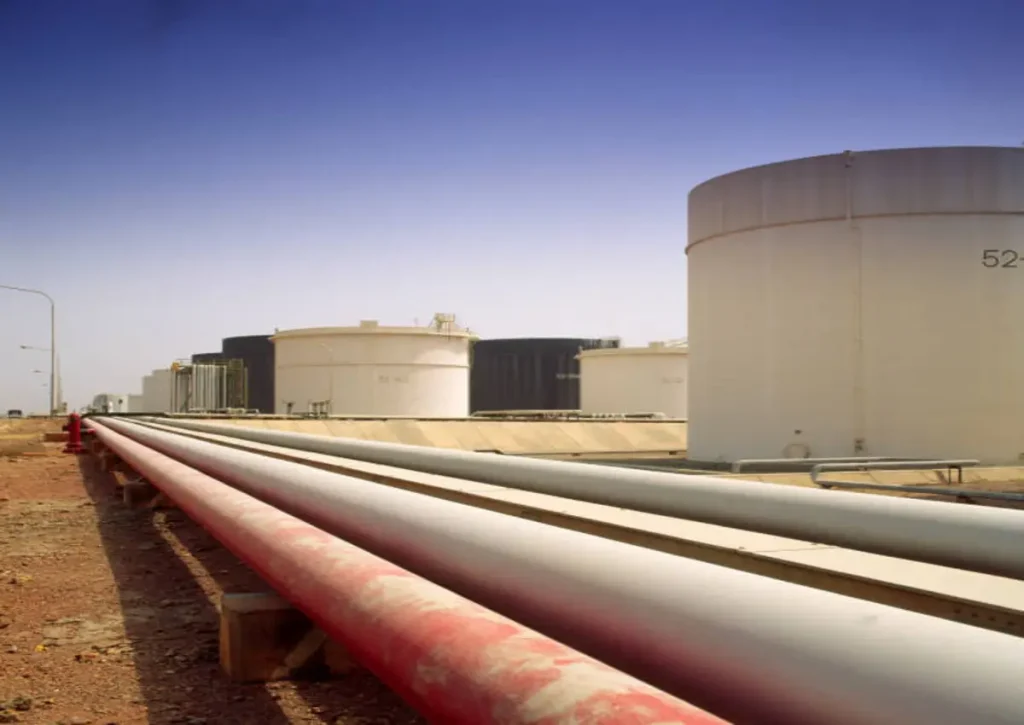
Gas pipelines at an NNPC refinery in Nigeria as daily gas-to-power supply climbs to 7.59BSCFD in July 2025. Andrew Holt/Construction Photography/Avalon/Getty Images
Average daily deliveries to power plants grew by 3.48 percent compared with June levels.
Deliveries rose from 833.86 million standard cubic feet per day in June to 862.86 million in July.
This marked the highest gas supply to power plants in three months.
Power sector supply had previously reached 886.7 million in April and 837.64 million in May.
In the first quarter of 2025, Nigeria gas supply also showed consistent growth.
January recorded 780.23 million, February reached 849.37 million, and March peaked at 886.83 million standard cubic feet per day.
The commission said, “Nigeria has achieved a rare energy milestone as gas flaring fell to 7.16 percent in July 2025, even as daily gas production rose to 7.59 billion standard cubic feet per day.”
Nigeria gas supply trends show steady three-year growth
According to the NUPRC, Nigeria gas supply has maintained steady growth for three years.
The July 2025 daily average marked an 8.58 percent increase compared with the 2024 full-year average of 6.99 billion.
It was also a 9.84 percent increase compared with the 2023 average of 6.91 billion.
Production gains underscore the commission’s efforts to sustain reliable energy generation.
The data show a stronger focus on boosting the nation’s domestic power sector.
Nigeria gas supply breakdown by contracts and usage
NUPRC data also detailed the structure of gas production and supply in July 2025.
Marginal Sole Risk operations contributed 63 percent of Nigeria gas supply.
Production Sharing Contracts accounted for 24 percent of the total volume.
Joint Venture contracts represented 10 percent, while Sole Risk operators added 3 percent.
The regulator confirmed that domestic gas deliveries reached 27.82 percent of total output.
Exports accounted for 35.88 percent of total gas produced within the period.
Field and plant operations, including fuel, lifting, and reinjection, consumed 29.13 percent of output.
Nigeria gas-to-power supply supports reduced flaring initiatives
The regulator linked the decline in flaring to the Nigerian Gas Flare Commercialisation Programme.
It also cited the Decarbonisation and Sustainability Blueprint as a key factor.
The Upstream Petroleum Decarbonisation Template introduced carbon management targets to further cut emissions.
Flaring levels dropped to 7.16 percent in July 2025 compared with 7.55 percent in 2024.
This also represented an improvement from the 7.38 percent reported in July 2023.
The agency reaffirmed its commitment to end routine flaring by 2030.
Energy analysts have highlighted the alignment of this target with global climate goals.
The NUPRC reported that July’s Domestic Gas Delivery Obligation performance stood at 72.5 percent.
June’s performance was 71.8 percent, while previous months ranged from 70.8 to 73.7 percent.
Nigeria gas supply outlook and future projections
The commission said sustained domestic supply growth is vital for energy stability.
Nigeria gas supply will remain a core element in efforts to power industries and homes.
Officials reiterated that consistent supply is essential to bridge electricity shortfalls.
The regulator said reforms are targeted at maximising national energy resources.
Industry leaders stress that gas supply stability strengthens the economy and supports industrial growth.
Nigeria gas supply has become central to national power generation and regional exports.
The country remains on course to meet its 2.5 million barrels daily oil target by 2026, according to earlier reports on domestic production goals.
Related: BPP DG Plans Strategic Reforms to Close Nigeria’s $3 Trillion Infrastructure Gap
Plans to save $4.5 billion in oil and gas costs by December have also been published on energy sector reforms.
The commission said further reforms will expand energy access while meeting environmental commitments.


